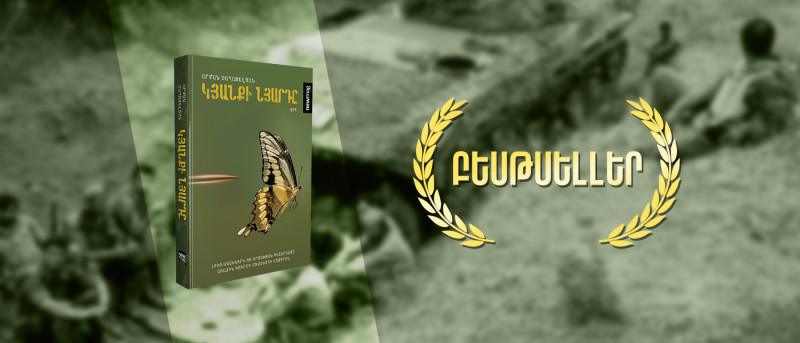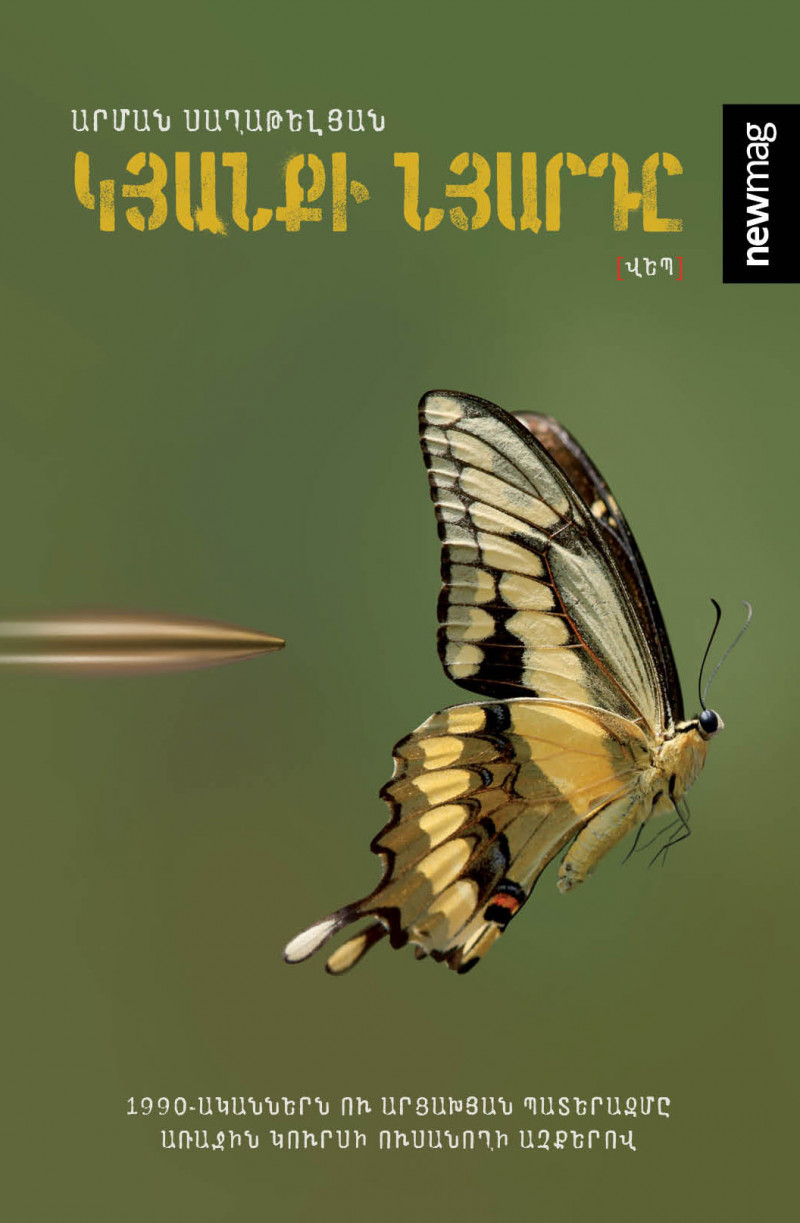During the wartime “Nervus Vivendi” novel was a bestseller in Armenia

Arman Saghatelyan’s “Nervus Vivendi” novel was in the bestselling list of Yerevan during wartime. The novel is about the 1991-1993 Nagorno Karabakh war. The author tells the capturing story in the first person, as an eyewitness. Newmag published the book in September. Shortly after the book presentation, on September 27, Azerbaijan launched a large-scale attack on the peaceful population of Artsakh, and just like that, after 30 years, Arman Saghatelyan was again in the hotspot of the war. In live TV broadcasts, he informed the public about the unseen details of the war. Details, which he was witnessing for the second time in his lifetime.
30 years ago Arman was a student, who went to the battlefield in secret from his parents. In his notes, which later became the pages of his book, Arman was writing about the liberation of lands and how two young students, Arman and his friend Tigran, participated in the liberation of Chldran, a village in the Martakert region of Artsakh.
Through the prism of a student, he described the war and the moments of victory and defeat. The wartime in this book is described with honesty, subtle humor, and cruel details. The reality of our days is clearly pictured in the precise descriptions of the book.“Everything is calm, organized, without unnecessary emotions. It is hard to frighten a city like this. The population - elderly, children, women, everyone here is fighting next to the army. Everyone has a unique way of fighting. One of them fights in the battlefield, the other one in the basement with her baby, under the shelling.
In wartime, life and human destiny are completely changed within a moment. There is a single rumble, which is followed by a terrifying silence. “It was so calm in the street as if those people were not living under the shelling. People live as usual, children study at the schools, transportation works. And suddenly … The city is shelled again… After a while, the city lives again, as if nothing has happened. Elders work, children study, transportation works. Marasmus.”
30 years ago, as well as in our days, there are heroes with known and unknown names, who fight in the frontline to defend the homeland. At moments like this, it seems that we are united, we have the same goals and there are no dividing lines in politics. Instead, there is one homeland and one slogan - We Will Win. “From time to time I wondered, if this attitude will change after the war, or if we will be wise enough to save the atmosphere of support and understanding. I sincerely wanted to believe that it would be saved, but I learned from history, that my belief was deceptive… Why do people become united only when the situation is extremely bad and seems that it can’t get worse? If we manage to answer this question, the situation may simply never get worse.”

Arman Saghatelyan
4800 ֏
Description
What was in mind of an Armenian youngster doing in the 1990s, during the collapse of the USSR, independence, the Artsakh War, and the energy crisis? What it was for an 17-year-old teenager? Arman Saghatelyan's autobiographical novel tells the story of Armenia during 1991-93. It is not black and white, it is not only about the victories, struggle for survival, but also about the cold and dark days. Everything was either too bad or too good. But according to the author, it was tolerable.
This book is about two young men who join the battlefield. They secretly leave for Artsakh to take part in the battles for Chldran. Nothing is exaggerated: neither the fear, nor courage, death, nor struggle. The battle for Chldran was fateful, as it became one of the turning points of the big war.
Read also

Winterfest to feature David Georgyan’s sci-fi action novel Impedance (trailer)

At Winterfest 2026, Newmag will present Marianna Hakobyan’s “Don’t Change the Names” (trailer)

Closing and Award Ceremony of the “Sprout in Armenian – 2025” Competition at Newmag Winterfest

“I hope my story will inspire many and help them keep believing and dreaming.” Henrikh Mkhitaryan’s welcoming speech to Armenian fans (video)

